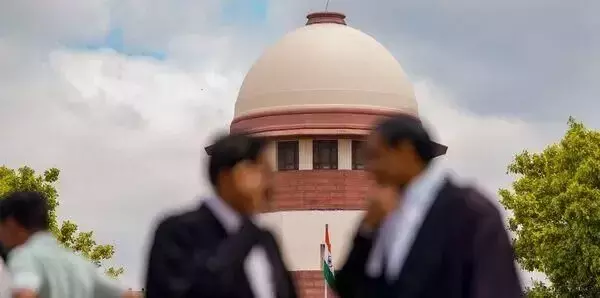SC issues notice on plea to allow lawyer's presence during police interrogation

New Delhi: The Supreme Court on Wednesday sought the Centre’s response on a writ petition calling for the right of individuals to have their lawyers present during questioning by the police or other investigating agencies. A bench comprising Chief Justice of India B.R. Gavai and Justice K. Vinod Chandran heard the plea filed by advocate Shaffi Mather. At the beginning of the hearing, the bench asked whether the petition referred to specific instances where individuals faced coercion during interrogation. Justice Chandran questioned, “Does the petition mention any cases that demonstrate the need for legal counsel during questioning?” Senior advocate Menaka Guruswamy, representing the petitioner, argued that it is in the public interest to ensure the presence of a lawyer during interrogations so that individuals can be advised on whether a question is self-incriminating.
The CJI then asked the counsel to cite relevant examples. In response, Guruswamy referred to the India: Annual Report on Torture 2019 by the National Campaign Against Torture, which highlights recurring patterns of torture and impunity in the country. Taking note of the submission, the bench issued a notice on the petition. The plea contends that denying or restricting access to legal counsel during interrogation violates fundamental rights under Articles 20(3), 21, and 22 of the Constitution, increasing the risk of custodial violence and deaths. It argues that the current practice of allowing lawyers to be present only within visible but not audible range — or at the discretion of the investigating agency — undermines due process and the right against self-incrimination. The petition notes that such practices persist under laws like the Prevention of Money Laundering Act (PMLA) and the Narcotic Drugs and Psychotropic Substances (NDPS) Act, thereby fostering coercive interrogation environments.
The petitioner has sought multiple directions from the apex court, including:
a) Declaring the right to have legal counsel present during questioning or interrogation by any state or investigating agency as a non-discretionary and fundamental right;
b) Interpreting Section 41D of the CrPC, Section 38 of the Bharatiya Nagarik Suraksha Sanhita (BNSS), and similar provisions under special laws such as Section 50 of the PMLA to affirm this right;
c) Framing guidelines ensuring that access to legal counsel during interrogation upholds the constitutional guarantees under Articles 20(3), 21, and 22(1);
d) Issuing directions to mandatorily inform individuals of their right to remain silent and their right to legal counsel during any form of questioning or enquiry; and
e) Passing any other orders deemed necessary in the interest of justice.
The petition was filed with the assistance of Advocate-on-Record Prateek K. Chadha.



